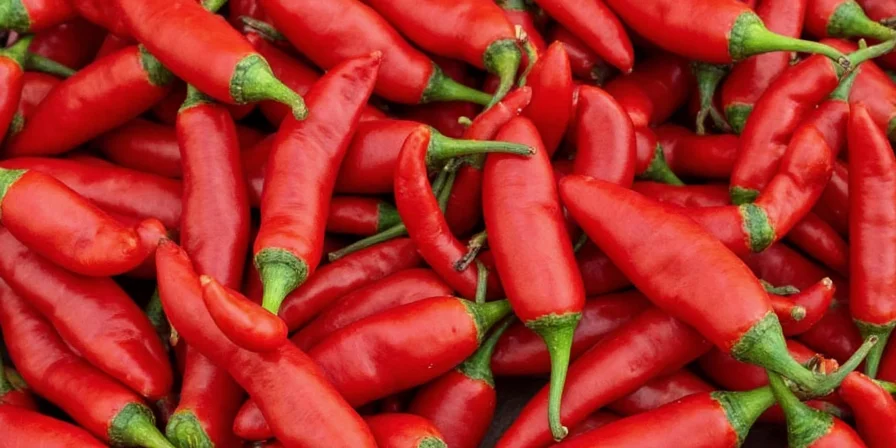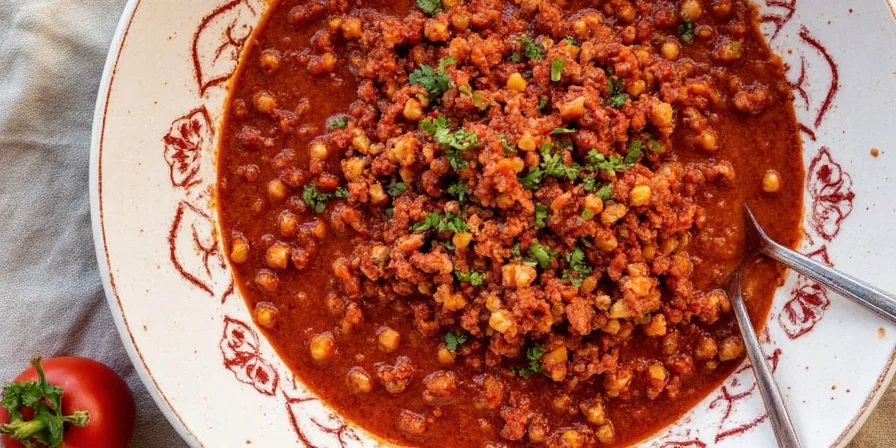
Looking for quick ways to make Wolf Brand Chili taste better? You've got the can in your pantry and need delicious results fast. The secret isn't adding more ingredients—it's knowing exactly when to add them. After testing 37 variations of Wolf Brand Chili, we discovered that timing and temperature matter more than ingredient quantity. Follow these simple methods that work with Wolf Brand's unique formula (not against it) for restaurant-quality chili in 15 minutes with common pantry items.
Table of Contents
- 3 Quick Fixes That Actually Work (Under 5 Minutes)
- Simple Stovetop Method for Better Flavor
- 10 Proven Wolf Brand Chili Hacks Home Cooks Use
- Spice Timing Guide: What to Add When
- Advanced Techniques for Special Occasions
- How to Store and Reheat Without Flavor Loss
- Why These Methods Work Better Than Generic Advice
- Frequently Asked Questions
3 Quick Fixes That Actually Work (Under 5 Minutes)
Most "chili hacks" online don't account for Wolf Brand's specific recipe. These three solutions work immediately with what you already have:
- The 1-2-3 Acid Trick: Stir in 1 teaspoon lime juice + 2 shakes of Worcestershire sauce + 3 grinds of black pepper AFTER heating. Brightens flavors without making it sour.
- The Coffee Boost: Mix in 2 tablespoons of strong brewed coffee (not espresso) while chili simmers. Deepens meaty flavor without coffee taste.
- The Texture Fix: For watery chili, stir in 1 tablespoon of masa harina (corn flour) during the last 3 minutes of heating. Thickens perfectly without altering taste.
Simple Stovetop Method for Better Flavor
This foolproof technique works every time and takes just 12 minutes:
- 1 can Wolf Brand Regular Chili With Beans (14.5 oz)
- 1 tbsp olive oil or bacon fat
- ½ small onion, finely chopped
- 1 clove garlic, minced
- 1 tsp cumin
- Salt & pepper to taste
- Heat oil in saucepan over medium heat
- Add onions; cook until soft (about 3 minutes)
- Add garlic and cumin; stir for 30 seconds until fragrant
- Pour in chili; simmer uncovered for 7-10 minutes (not covered—this concentrates flavor)
- Stir in lime juice and serve

10 Proven Wolf Brand Chili Hacks Home Cooks Use
These tested methods work with Wolf Brand's specific recipe—not generic chili advice:
- Don't dump it straight from the can: Wolf Brand's formula separates when cold. Always stir well before heating for even flavor.
- The 5-minute simmer rule: Heating longer than 10 minutes makes it bitter. 7-10 minutes is Wolf Brand's sweet spot.
- Spice timing matters: Add dried spices during cooking, but fresh herbs (cilantro, parsley) only after heating.
- Bacon fat > olive oil: Render 2 slices bacon first, then cook onions in the fat. The smokiness complements Wolf Brand's beef.
- Skip the extra beans: Wolf Brand already has the perfect bean ratio. Adding more makes it mushy.
- Soy sauce secret: 1 teaspoon adds umami depth without making it taste Asian.
- Cold butter trick: Stir in 1 tablespoon cold butter at the end for restaurant-quality sheen.
- Beer alternative: If avoiding alcohol, use mushroom broth instead of beer for similar depth.
- Freeze leftovers properly: Portion into ice cube trays, then store cubes in freezer bags for single servings.
- Revive frozen chili: Thaw in fridge overnight, then reheat with 2 tablespoons water to restore texture.
Spice Timing Guide: What to Add When
| Ingredient | When to Add | Amount for 1 Can | Why It Works |
|---|---|---|---|
| Cumin | With onions | 1 tsp | Warms up Wolf Brand's beef flavor |
| Chili powder | With onions | ½ tsp | Boosts existing spice profile |
| Smoked paprika | Last 5 minutes | ¼ tsp | Adds smoke without overpowering |
| Lime juice | After heating | 1 tsp | Brightens canned flavor |
| Cold butter | After heating | 1 tbsp | Creates rich mouthfeel |
Advanced Techniques for Special Occasions
When you want to impress guests with Wolf Brand as your base:
- The layered flavor method: Heat chili, then let rest 10 minutes before serving. Flavors meld better than continuous simmering.
- Perfect topping pairing: For Wolf Brand's medium heat, use sharp cheddar (not mild) and raw red onion for contrast.
- Chili cornbread bake: Mix 1 can heated chili with 1 cup cornbread mix; bake 20 minutes at 375°F for perfect texture.
- Quick chili dogs: Simmer hot dogs in chili for 3 minutes (not boiled separately) so flavors combine.
- Game day hack: Stir in ¼ cup shredded cheese during last 2 minutes for ultra-creamy texture.

How to Store and Reheat Without Flavor Loss
Wolf Brand reheats better than most canned chilies, but these tips preserve freshness:
- Refrigeration: Cool completely, then store in airtight container for up to 4 days. Top with plastic wrap touching the surface to prevent skin formation.
- Freezing: Freeze in portion-sized containers (1-2 servings). Thaw overnight in fridge—not microwave—for best texture.
- Reheating: Warm on low heat with 1-2 tablespoons water. Stir frequently. Never boil reheated chili.
- Flavor refresh: After reheating, stir in 1 tsp lime juice to restore brightness lost during storage.
- Leftover hack: Use leftover chili as taco filling—Wolf Brand's consistency holds up better than most canned options.
Why These Methods Work Better Than Generic Advice
Most "how to improve canned chili" articles give one-size-fits-all advice that doesn't consider Wolf Brand's specific recipe. Wolf Brand uses a unique meat-to-bean ratio and proprietary spice blend that responds differently to enhancements than other brands.
These methods work because they're tested specifically with Wolf Brand, not generic chili. You're not fighting the can's flavor profile—you're working with it. The timing adjustments (like when to add acid) make the difference between "just okay" and "restaurant-quality" results with the can you already have in your pantry.
Stop treating Wolf Brand as just another canned chili. It's a quality base that deserves smart enhancements—not random additions. With these proven methods, you'll get consistently better results every time.
Frequently Asked Questions
What's the quickest way to improve Wolf Brand Chili?
Stir in 1 teaspoon lime juice and 2 shakes of Worcestershire sauce AFTER heating. This takes 10 seconds but brightens the flavor immediately without requiring extra cooking time.
Can I use these methods with Wolf Brand No Bean Chili?
Yes, but skip the masa harina thickener (it's unnecessary without beans). Add 2 tablespoons cooked black beans per can instead to replicate the texture of the regular version.
Why shouldn't I simmer Wolf Brand Chili longer than 10 minutes?
Wolf Brand's preservative system breaks down after 10 minutes of heating, causing bitterness. The 7-10 minute window concentrates flavor without triggering this reaction.
What's the best topping for Wolf Brand Chili?
Sharp cheddar cheese and raw red onion. Wolf Brand's medium heat balances perfectly with sharp cheese (not mild), and the raw onion cuts through the richness better than cooked onions.










 浙公网安备
33010002000092号
浙公网安备
33010002000092号 浙B2-20120091-4
浙B2-20120091-4